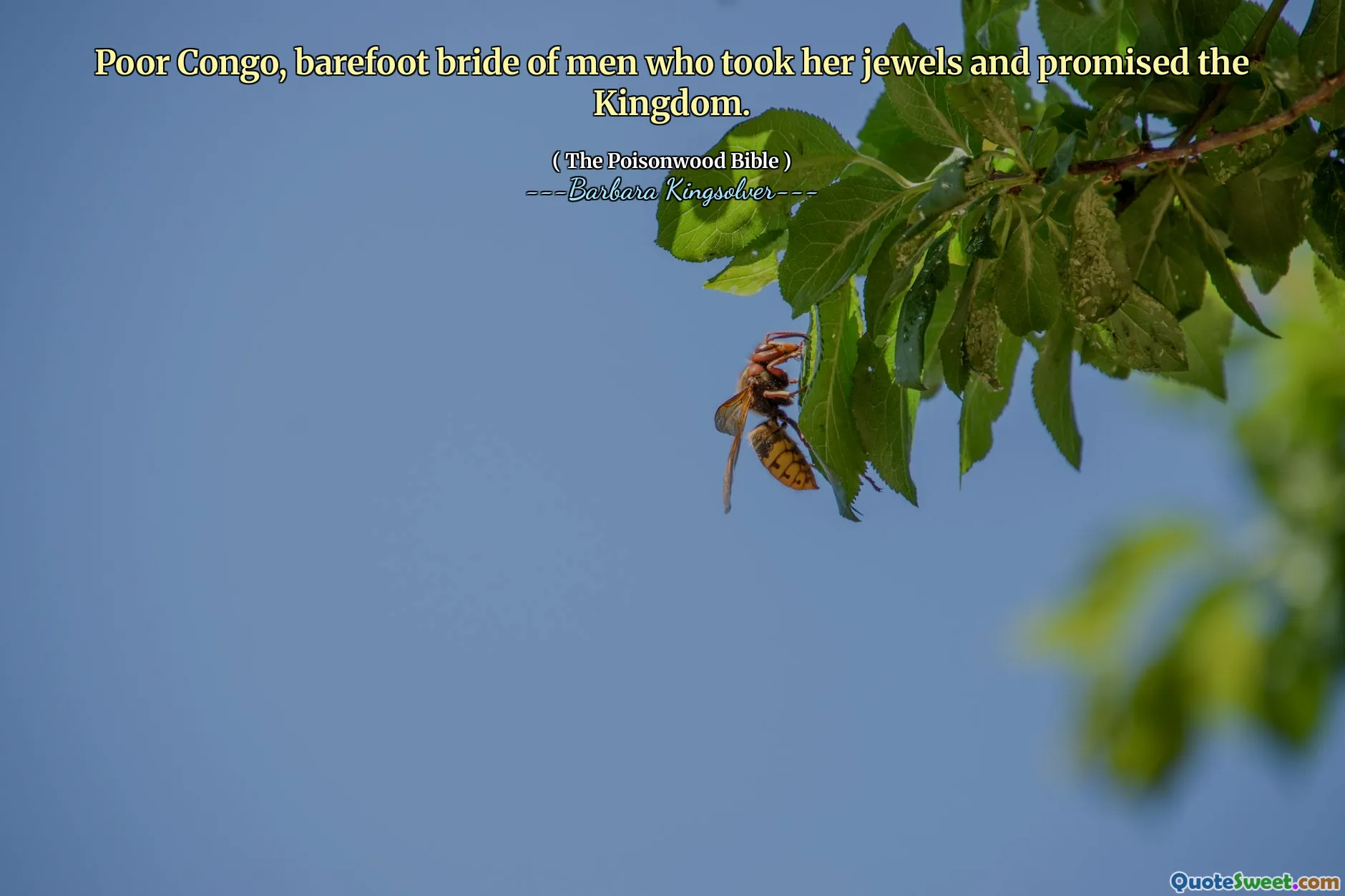
Poor Congo, barefoot bride of men who took her jewels and promised the Kingdom.
In "The Poisonwood Bible," Barbara Kingsolver paints a poignant picture of Congo as a nation exploited and stripped of its riches. The phrase "Poor Congo, barefoot bride of men who took her jewels and promised the Kingdom" reflects the sorrow and loss experienced by the Congolese people, who have been subjected to the greed of outsiders. This metaphor evokes the image of a bride who, despite her beauty and potential, is left vulnerable and impoverished by those who fail to honor their commitments. The reference suggests a deep sense of betrayal, as the promises made by foreign powers result in suffering rather than prosperity. Congo is depicted as a victim of colonialism and exploitation, where its wealth is taken for the gain of others. Through this lens, Kingsolver critiques the historical and ongoing injustices faced by the nation, emphasizing the resilience of its people amid their struggles for dignity and sovereignty.
In "The Poisonwood Bible," Barbara Kingsolver paints a poignant picture of Congo as a nation exploited and stripped of its riches. The phrase "Poor Congo, barefoot bride of men who took her jewels and promised the Kingdom" reflects the sorrow and loss experienced by the Congolese people, subjected to the greed of outsiders.
This reference suggests a deep sense of betrayal, as the promises made by foreign powers result in suffering rather than prosperity. Congo is depicted as a victim of colonialism and exploitation, where its wealth is taken for the gain of others while emphasizing the resilience of its people amid their struggles for dignity and sovereignty.











